Guest Speaker: My Culinary Awakening in Europe
By Michael Riggs, Ph.D., CEC, FMP
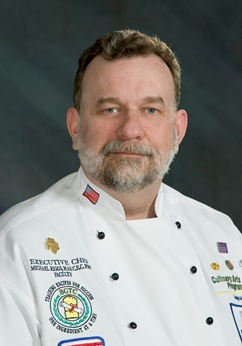 Part 1 of a two-part story of an educator’s learning excursion this past summer.
Part 1 of a two-part story of an educator’s learning excursion this past summer.
Over the summer of 2010 I was given a unique opportunity to spend 14 days in England at Oxford University studying the history of European cuisine. First let me say that what took thousands of years to develop could not be researched in 14 days even with the 100 miles of books at the Oxford Bodleian Library. But what I did learn and experience came in the form of the best kind of research, eating and having conversations with chefs, restaurateurs and the people of the countries I visited. Let’s begin my journey …
London
Truly an “international cuisine city” with more than 100 cuisines being served in some of the finest restaurants in Europe. London has gone through a culinary explosion in the past decade, according to Geoff Booth, assistant principal (vice president) of the oldest culinary school in London, which was established by Chef Auguste Escoffier and Hotelier Cesar Ritz, two of Europe’s leading industry icons of the 1900s at Westminster Kings College of Hospitality.

 Educators and students were among the 38 finalists who rose to the occasion in the California Raisin Marketing Board’s final bake-off.
Educators and students were among the 38 finalists who rose to the occasion in the California Raisin Marketing Board’s final bake-off.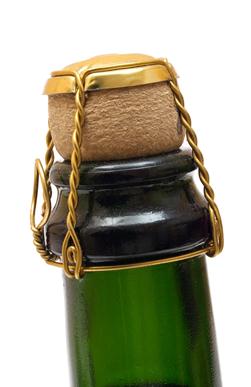 A server needs to seize the opportunity for determining the type of sparkling wine his or her customers prefer.
A server needs to seize the opportunity for determining the type of sparkling wine his or her customers prefer.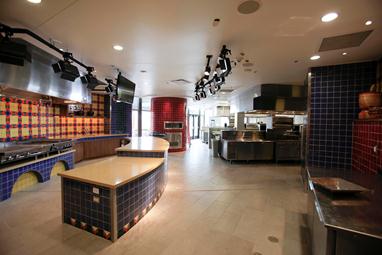 Culinary leaders from the Western Hemisphere gathered last month in San Antonio to celebrate El Sueño, The Culinary Institute of America’s mission to promote Latino diversity in the foodservice and hospitality industries.
Culinary leaders from the Western Hemisphere gathered last month in San Antonio to celebrate El Sueño, The Culinary Institute of America’s mission to promote Latino diversity in the foodservice and hospitality industries.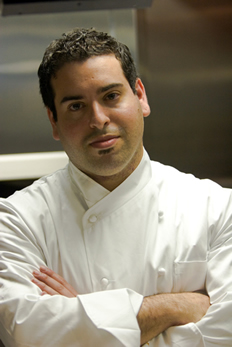 An interview with Mark Liberman, chef/owner of Black Sheep Butchery, Sacramento.
An interview with Mark Liberman, chef/owner of Black Sheep Butchery, Sacramento. Forming dyads requires students to clarify their own thinking before sharing it with another student, and then discuss it before sharing it with the entire class.
Forming dyads requires students to clarify their own thinking before sharing it with another student, and then discuss it before sharing it with the entire class.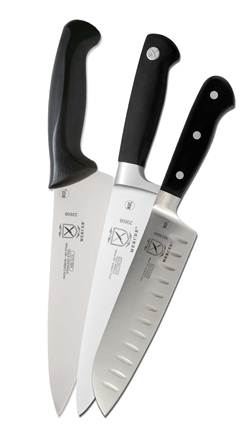 Chef Weiner continues his advice for students on selecting and maintaining knives. This month: the difference between sharpening and honing and the definition of “true.”
Chef Weiner continues his advice for students on selecting and maintaining knives. This month: the difference between sharpening and honing and the definition of “true.” Turn-key teaching tools for sustainability.
Turn-key teaching tools for sustainability.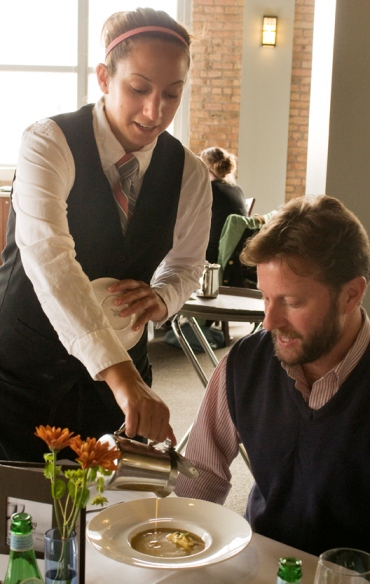 The day of the frumpy, inattentive waiter is gone. In the current economy, properly training wait staff has never been more important.
The day of the frumpy, inattentive waiter is gone. In the current economy, properly training wait staff has never been more important.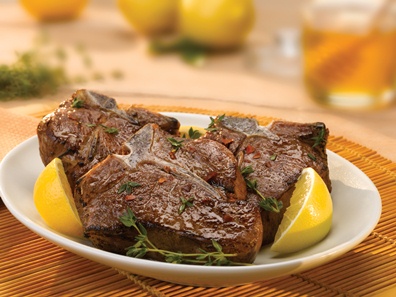 From the American Lamb Board, a primer that covers everything from U.S. sheep production to menuing lamb.
From the American Lamb Board, a primer that covers everything from U.S. sheep production to menuing lamb.